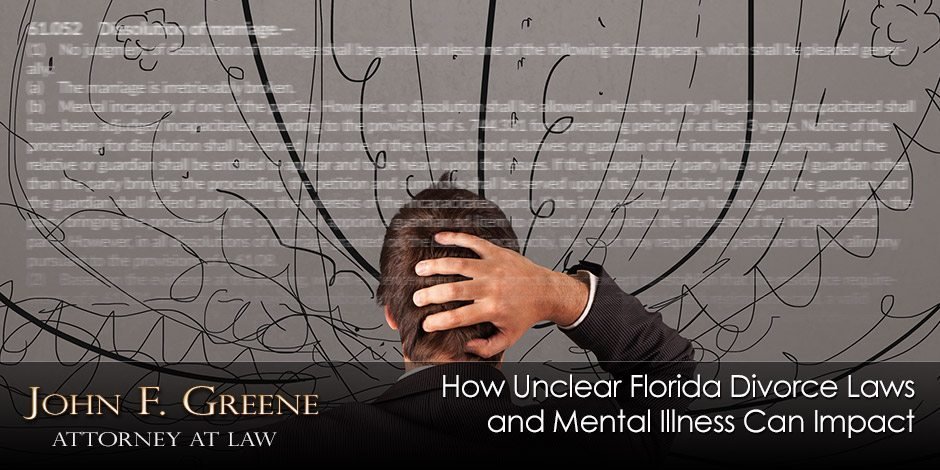
Florida, on the whole, is a no-fault divorce state, meaning that the traditional wrongdoing of a spouse cannot be used as legal grounds for divorce. In states where fault is used to establish grounds for divorce, things like adultery, abandonment and cruelty are the traditional grounds upon which fault can be established.
However, Florida is not a no-fault divorce state across the board. Unusually, Florida shares a unique exception with the state of California that allows spouses to file for divorce if a spouse is declared mentally incapacitated/incompetent or insane. While it would be great if such a law was straightforward and easily applied, procedural requirements that must be met for a declaration of mental unfitness raise complicated legal questions that impact Florida families.
Zelman v. Zelman: A Real-World Look at Florida’s Three Year Waiting Period
Martin Zelman, a resident of Florida, wants to divorce his wife that he married in 2000 after seven years of dating. This may seem like a typical Florida divorce case, but nothing could be further from the truth. Martin has dementia, meaning he doesn’t know who the country’s president or even what year it is. Like so many divorce cases where significant amounts of assets are concerned, a fight over money is at the center of this case.
Martin’s children want to push their stepmother out of the family picture so that they can receive roughly $10 million of their father’s wealthy estate once a divorce is finalized before their father passes. Martin’s wife, Lois, on the other hand, is fighting the divorce. Lois ultimately hopes to receive that $10 million plus property promised to her as part of a prenuptial agreement.
Both sides are claiming to be protecting Martin and his interests, and both sides agree he does indeed suffer from dementia. After that, the argument becomes intensely hostile, with Mr. Zelman’s attorney claiming Lois would not stay with him but for his wealth. Lois rebuts that presumption, noting that she has stayed with Mr. Zelman for more than two decades.
The testimony of family friends has conflicted, a fact that further complicates an already complicated legal case. In the words of Palm Beach County Circuit Judge Charles Burton, “this is a very unique case”.
Florida law also requires that there must be a three year waiting period to file for divorce after being declared mentally unfit. While this exception was created to protect incapacitated spouses from being immediately divorced by the spouse who is well, the facts of this case reverse the usual dynamics of this legal exception. As you can see, the legal dynamics of this exception can overwhelmingly complicate a divorce case when large amounts of wealth and assets are at stake.
The case ultimately ended in a settlement after the divorce decision was sent to probate court for a reopening of guardianship questions and a review of Mr. Zelman’s mental state, reminding high-asset Florida residents of the importance of obtaining an experienced Florida divorce lawyer.
John F. Greene is an experienced Destin divorce attorney who has represented high asset Florida divorces and their unique legal circumstances. Contact John F. Greene call 850-424-6833 for a legal consultation to discuss the circumstances of your high asset Florida divorce. He also handles complex matters involving military divorce for both service members and spouses.
His office is located in the City of Destin and he serves all those along the Emerald Coast, specifically the Destin, Fort Walton Beach, Niceville, Santa Rosa Beach and Panama City Beach areas.









